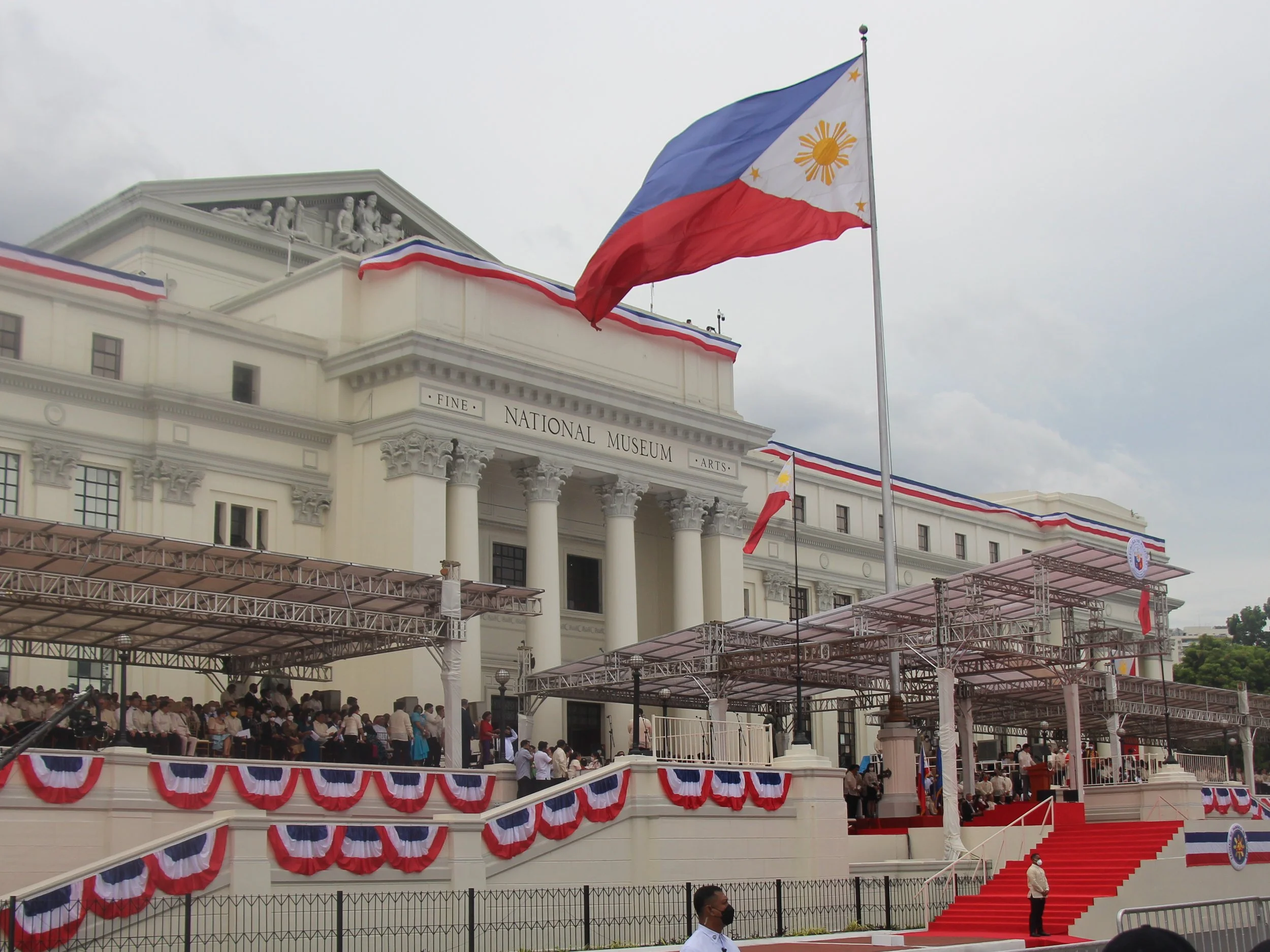Protests Sweep the Philippines Amid Massive Flood-Control Corruption Scandal
Philippine President Ferdinand “Bongbong” Marcos Jr.’s inauguration takes place in June 2022 (Wikimedia Comons).
Over 60,000 protestors took to the streets of Manila, the capital of the Philippines, on September 21 to protest perceived government corruption, per the South China Morning Post. According to the outlet, protestors allege that corrupt officials have siphoned off billions intended for climate-related projects since 2023.
Crissa Tolentino, a 36-year-old schoolteacher, tells the BBC that floods and heavy rain regularly plague the Philippines. She says that in some low-lying towns, roads are only drivable for two months out of the year. Rains interrupt commutes and daily life, and floods cause outbreaks of leptospirosis, a liver disease spread through sewer water.
Given this backdrop, allegations of government corruption in flood-control projects represent a strong flashpoint for Filipinos. The scandal, which, according to the South China Morning Post, is the biggest in the history of the Philippines in terms of the scale of corrupted funds, burst into the public scene after a harsh monsoon season in summer 2025. According to ABS-CBN, after heavy rains exposed weaknesses in flood control programs, President Ferdinand Marcos Jr. ordered an investigation into possible corruption. The Department of Finance concluded that over USD $2 billion intended for flood control projects was put towards kickbacks for congressmen and senators, per Politico. However, Greenpeace, an independent climate organization, recently estimated as much as USD $17.6 billion, or one trillion Philippine pesos. According to the BBC, this staggering number represents over 70 percent of the funds meant for flood control.
The report’s publication led to the organization of the September 21 protests in Manila and other Philippine cities. Named the “Trillion Peso March” for the magnitude of corrupted funds, the demonstrations attracted as many as 61,000 Filipinos to the capital and over 100,000 across the country. According to Rappler, a Filipino outlet headquartered in Manila, protestors arrived on bikes, on foot, and via free rides offered by the transport group Manibela to the protest sites. The grassroots energy of the Trillion Peso March, from its youth engagement to coordination with private companies like Manibela, could be felt around the country.
Even with the number of protestors, demonstrations across the Philippines stayed “generally peaceful,” according to the Philippine National Police. The Manila Police District announced only 72 arrests in isolated incidents.
According to Rappler, protestors demanded that leaders implicated in the scandal be jailed. Per the BBC, the President of the Senate, Francis “Chiz” Escudero, and the Speaker of the House of Representatives, Martin Romualdez, resigned on September 8 and September 17, respectively, following their implication in the scandal. However, according to Al Jazeera, protestors continue to demand more accountability for the nearly 30 House members and government officials accused of taking cash payments.
President Ferdinand Marcos Jr., has responded to the protests by aligning himself with the protestors. At a press conference prior to the Trillion Peso March, Marcos commented, “Do you blame them for going out into the streets? If I weren’t president, I might be out in the streets with them.” In his July “State of the Nation Address,” Marcos threatened to identify and file charges against government officials and private sector actors who were found to have been involved in the Floodgate scandal. On September 11, Marcos formed an independent commission, granting it sweeping powers to investigate and uncover corruption in the flood-control projects. His solidarity with the protestors has shielded him from their ire, as, according to Rappler, protest organizers did not call for his resignation.
The grassroots, youth-led protests in the Philippines mirror similar recent protests in Nepal and Indonesia. According to the BBC, the Nepal “Gen Z” protests against corruption among government elites toppled the government in less than 48 hours, and student-led Indonesian protests against “perks” for members of parliament successfully defeated the policy, per Reuters. The scale, grassroots energy, and youth of these movements suggest a growing pattern: younger generations will no longer tolerate entrenched corruption, and governments that fail to respond accordingly will not survive.

